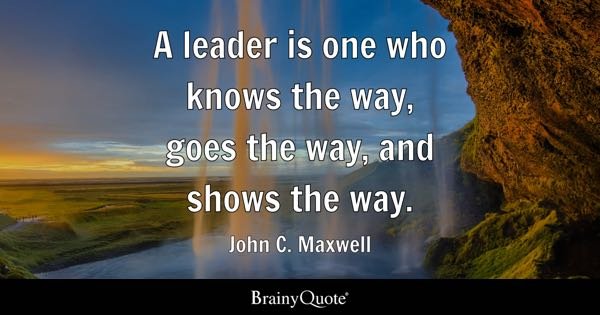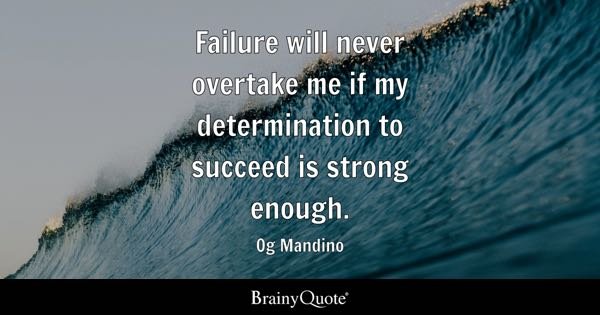
Next Steps
Leadership & Skills…
The Participative Approach to Leadership
As a Business Owner or Manager, your leadership skills are going to be a very important factor in determining the success or failure of your business…
Below you’ll find some pointers on…The Participative Approach To Leadership…
The Participative Approach to Leadership
There are many different kinds of leadership, and the style you choose could increase
your chances of success. Research shows that participative leadership is usually
more productive than authoritative models.
What is participative leadership exactly? It’s a form of governance that shares power
and encourages input. Management studies show that it can enhance outcomes and
increase job satisfaction and morale. It’s the difference between giving orders and
building consensus.
For example, consider two different approaches to an office move. The CEO of a
more autocratic company might pick the new location and give employees a list of
tasks to complete.
On the other hand, a participative leader would form a committee to review possible
sites and give employees the opportunity to discuss the final candidates and
coordinate logistics.
Learning to be a more collaborative leader can help your relationships and your
career. Put these suggestions to work for you.
Maximizing the Advantages of Participative Leadership:
- Earn trust. For a participative workplace to flourish, colleagues need to trust
their leader and each other. That requires confidence in each other’s character
and abilities. Sincerity and transparency are essential.
2.Pull together. Close communication draws a team together. Employees are
1
more likely to develop strong and healthy professional relationships and maybe
even socialize more outside of work.
3.Increase engagement. According to recent Gallup polls, employee engagement
is the lowest it’s been in 20 years. Fifty-four percent of employees say they are
psychologically unattached to their work and do the minimum. Giving
employees a greater voice can increase their commitment.
4.Celebrate diversity. One of the greatest strengths of participative leadership is
welcoming contributions from team members with a variety of talents and
backgrounds. Approaching challenges from many different perspectives
usually creates more effective solutions.
5.Reward innovation. The free flow of ideas is another benefit. When you create
a safe environment for discussion, employees are more likely to propose ideas
that can help your business.
Overcoming Obstacles to Participative Leadership:
1.Clarify your vision. Motivating and inspiring your team becomes even more
important when you expect them to make greater contributions. You need a
clear mission that appeals to employees’ emotions and core values. Scheduling
regular one-on-one time and providing adequate resources also helps.
- Teach communication skills. With so much focus on discussion, employees may
need to work on their communication skills, including active listening and
sharing constructive feedback. Offer training sessions and post helpful
reminders around the office. Use games and exercises to make learning fun
and memorable.
3.Plan for delays. Another common drawback is the way group decisions usually
2
take longer. You may need an alternative process when you’re dealing with
time sensitive matters.
4.Provide structure. Planning ahead can also speed up discussions. Circulate an
agenda before meetings, so attendees will come prepared and stick to the
subject. Hire a professional facilitator or use a staff member.
- Set boundaries. The participative model works best with issues where your
staff has at least a minimum level of expertise. You may have to limit input on
some matters to those who meet certain qualifications.
- Deal with dissent. After your team votes, what do you say to the members who
were in the minority? Make it clear from the start that each employee needs to
be fully committed to backing the final decision.
7.Be decisive. Even in the most democratic workplace, there will be stalemates or
decisions that are ill-suited to group deliberations. You’ll still need to take
responsibility for resolving sensitive issues that affect the future of your
organization.
You can develop your participative leadership skills with practice. Use them to
advance your career and make your work more meaningful.
Powered by TCPDF (www.tcpdf.org)

Job Skills Assessment
As an employee there are going to be a multitude of different job offerings …some might be very appealing to you…the salary offerings might be enticing…But your jackpot question will be…Is it the job for me?
To help you along the way…below you’ll find some pointers…
Job Skills Assessment
If you’re looking for a job for the first time or you’d like to switch careers, you may be
wondering where your talents lie. The one thing you know is that you want to find a job
that you enjoy, but how can you tell what you would be good at before you get the
job?
The best way to determine a job worth pursuing is by doing a job skills assessment. A
self-assessment will allow you to explore your personality type, find out what you’re good
at, and determine your values.
Here’s a list of questions that may be a part of a self-assessment:
- Do you tend to be introverted or extroverted?
- Do you generally remain calm, or do you get nervous easily?
- How organized are you?
- What is your general temperament?
- What are your general interests?
- Do you enjoy risky situations?
Formal Job Skills Assessment Tests
There are many job skills assessment tests available online that may even be several
hundred questions long. These tests are designed to determine answers to the questions
above.
Sometimes a potential employer will want you to be evaluated before your interview.
However, if you can compose a list that combines your personality traits with skills that
you’re good at, you can assess your potential careers yourself.
1
The Answer is in Your Interests
By reflecting on your hobbies you may be able to determine a viable career choice. Try
answering these questions and consider the recommendations:
- Do you tend to like working with tools and objects, or working with other
people?
- If you like working with tools or objects you may be suited for a career in building,
repair, or engineering.
- If you enjoy working with others perhaps you’d make a good sales representative,
team leader, or manager.
- Do you prefer things to be concrete and organized, or do you prefer the
creative?
- Most career choices will involve organization to some degree, but if you prefer
creative options you may be suited for a career in art, music, advertising, or
photography.
- Do you like projects that involve a finished physical product, or a social
result such as improved self-esteem?
- If you prefer to see a finished product, you could be suited for a career in sales or
product creation. You may even like science and experimenting.
- If you prefer social results, you could consider some form of counseling or social work.
- Do you tend to enjoy business or science?
- This is an easy question, but understanding yourself can help you determine whether
you would be suited for a career in entrepreneurship or experimentation and research.
- Do you prefer when things are the same everyday or different?
- If you prefer a consistent day-to-day routine, you may want to consider office work
like accounting, or repair and construction work.
- If you like to see differences in your day, you might be better suited for a creative
profession like writing, directing, or designing.
2
- Do you prefer to follow or take charge?
- If you’re a person that tends to take charge, you could be a great team leader
someday. Look for a career where you get to manage people and lead everyone to a
common goal.
- Are you good at interpreting feelings?
- If you have proven to have a high emotional intelligence, you may be suited for
teaching or counseling. These careers require you to understand what your students
or clients are feeling and understanding.
Choosing your Career
You should now have a better idea about what kinds of jobs to look for in your career
search. If not, you should at least be able to narrow down your choices to a few categories.
You always have the option of reading books or taking classes in order to get a better
understanding of your career choice and to develop your skill set.
Remember that you can do anything you want when you’re determined. Finding a
job in line with your personal preferences helps you take advantage of your passion so you
can achieve greater success.


Lorem ipsum dolor sit amet, consectetur adipiscing elit. Curabitur aliquet quam id dui posuere blandit. Curabitur arcu erat, accumsan id imperdiet et, porttitor at sem.

Motivation
Motivating your employees pays huge dividends in many ways…The skillful Manager (Leader) will find ways to motivate his employees…But to help you out below are10 ways that you can motivate your employees…
1. Make your Business a pleasant and fun place for your employees to work
2. Be a Respected, Honest, and Supportive Manager ((Leader)
3. Offer your employees Rewards…It goes a long way
4. Give your employees room to grow
5. Share positive feedback with your employees
6. Always be up-front and transparent with your employees
7. Offer your employees flexible scheduling
8. Offer Light snacks and soft drinks in your workplace for your employees
9. Recognize your employee’s achievements
10. Ask your employees what they want…Don’t tell them what they need

Training
One of the greatest investments that you’ll ever make in your business is the training of your employees…Training your employees pays huge dividends…
Below you’ll find 10 benefits to be achieved by training your employees…
- Hard Skills. Mastering the hard skills or technical knowledge for performing the tasks is the number one benefit of employee training. …
- Soft Skills. …
- Employee Retention. …
- Employee Morale. …
- Teamwork and Collaboration. …
- Knowledge Retention. …
- Smooth Onboarding. …
- Technology Literacy.


What Employers Look For In A Job Applicant/ Candidate
Different employers look for different things in job applicants and employees…The nature of the job dictates what requirements and personal attributes are important…
Below to get you warmed up are 10 things that most employers look for in job applicants and or employees…
- Communication skills. Employers understand the value of effective communication and actively look for this skill in potential employees. …
- Honesty. Honesty is a key quality that employers want in their staff. …
- Loyalty. …
- Dependability. …
- Teamwork. …
- Flexibility. …
- Self-reliance. …
- Eagerness to learn.

Lorem ipsum dolor sit amet, consectetur adipiscing elit. Curabitur aliquet quam id dui posuere blandit. Curabitur arcu erat, accumsan id imperdiet et, porttitor at sem.
Lorem ipsum dolor sit amet, consectetur adipiscing elit. Curabitur aliquet quam id dui posuere blandit. Curabitur arcu erat, accumsan id imperdiet et, porttitor at sem.
The Power Of Knowledge
Knowledge is a powerful tool…The more knowledge you possess as an individual or employee …The more in demand and indispensable you’ll become…So go on and acquire knowledge…It won’t spoil…It’s guaranteed that there’ll become a time when you’ll need to use it!

